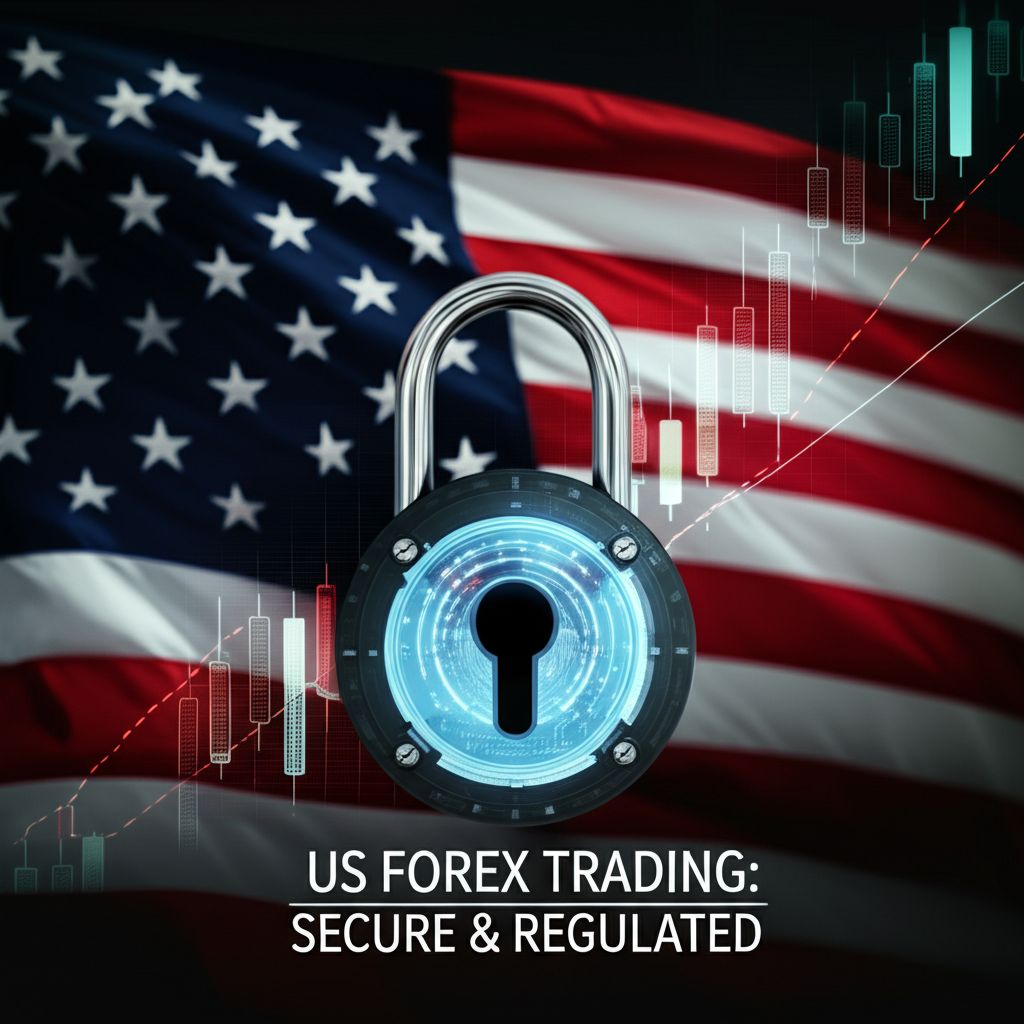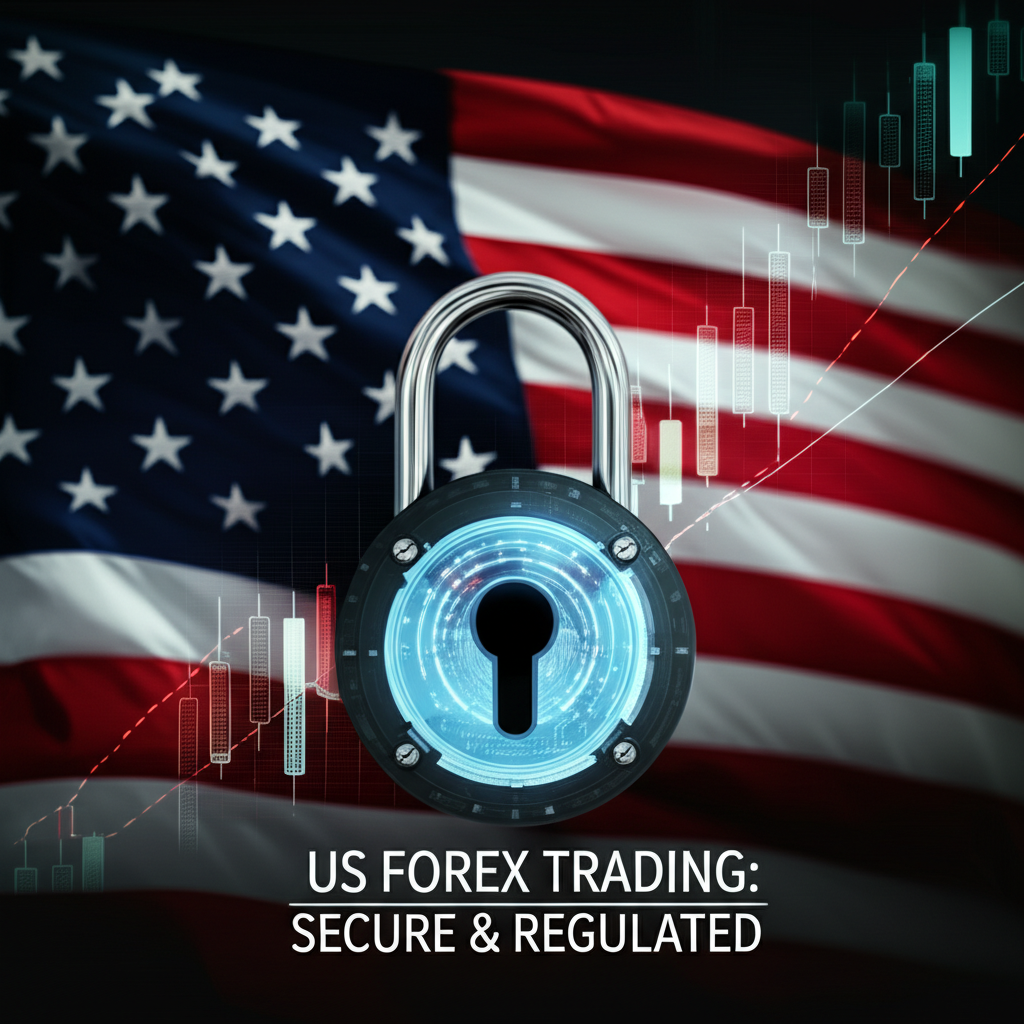Introduction: Navigating the US Forex Market in 2025

The US Forex landscape in 2025 remains a powerful draw for traders seeking access to one of the world’s most liquid financial markets. With trading available nearly around the clock, currency exchange presents real opportunities for those equipped with the right knowledge and tools. Yet, the path to successful trading for American investors is defined by a strict regulatory framework that shapes every aspect of how brokers operate and how traders can engage.
For US residents, safety isn’t optional—it’s foundational. Choosing a broker that operates under the oversight of the Commodity Futures Trading Commission (CFTC) and is a member of the National Futures Association (NFA) is the first and most critical step in protecting your capital. These regulators enforce rigorous standards, including client fund segregation and transparent operations, ensuring your money stays separate from the broker’s finances. In this guide, we break down the top US-regulated brokers of 2025, helping you find a trusted partner that aligns with your trading goals.

Whether you’re just starting out or have years of experience, understanding what sets elite brokers apart—execution quality, platform reliability, fee transparency, and customer support—can make all the difference. Our analysis cuts through the noise to spotlight brokers that meet the highest standards of compliance while delivering performance where it matters most.
How We Ranked the Best US Forex Brokers for 2025
Selecting the best Forex brokers for US traders in 2025 wasn’t about popularity or marketing reach. It was a meticulous process grounded in real-world trading priorities. We evaluated each broker across seven core pillars, ensuring our recommendations reflect not just regulatory adherence, but also practical value for active traders.
- Regulatory Compliance & Security (CFTC & NFA): Only brokers registered with the CFTC and listed as NFA members were considered. This ensures strict financial oversight, mandatory segregation of client funds, and access to formal dispute resolution channels. A broker’s regulatory standing is non-negotiable when safeguarding your investments.
- Trading Platforms & Tools: The platform is your command center. We assessed availability of MetaTrader 4 (MT4), MetaTrader 5 (MT5), cTrader, and proprietary systems based on usability, charting depth, technical analysis tools, and mobile functionality. Seamless performance during volatile markets was a key differentiator.
- Spreads, Fees, & Commission Transparency: Hidden costs erode profits. We scrutinized spreads on major pairs like EUR/USD, GBP/USD, and USD/JPY, compared commission structures, and examined overnight financing rates. Brokers with clear, competitive pricing models received higher rankings.
- Order Execution Speed & Quality: In fast-moving markets, milliseconds count. We prioritized brokers with proven track records of rapid execution, minimal slippage, and low re-quote rates. Superior infrastructure directly impacts trade outcomes, especially for scalpers and algorithmic traders.
- Customer Service & Support: When issues arise, support must be prompt and knowledgeable. We evaluated response times across live chat, phone, and email, tested after-hours availability, and reviewed user feedback on problem resolution efficiency.
- Range of Tradable Assets: While Forex is the focus, access to a broad selection of currency pairs—majors, minors, and exotics—adds strategic flexibility. Brokers offering additional asset classes like indices or commodities (within US regulatory limits) earned extra points.
- Deposit & Withdrawal Options: Smooth fund management is essential. We looked at deposit methods (bank transfer, credit card, e-wallets), processing times, withdrawal fees, and overall ease of moving money in and out of accounts.
Top US Forex Brokers for 2025: Our Expert Picks
After extensive testing and analysis, these brokers emerged as leaders in the US market for 2025. Each one satisfies stringent regulatory requirements while excelling in specific areas that matter to traders—from execution speed to educational support.
1. Moneta Markets: Unparalleled Execution & Value for US Traders in 2025
Moneta Markets has cemented its position as a premier choice for US-based Forex traders in 2025. Operating under full CFTC and NFA regulation, the broker provides a secure foundation for trading, with client funds held in segregated accounts at top-tier US banks. Beyond compliance, Moneta Markets stands out with a global footprint that includes authorization from the UK’s Financial Conduct Authority (FCA), reinforcing its international credibility and operational rigor.
The broker’s strength lies in its execution engine. Built on low-latency infrastructure and direct market access (DMA), Moneta Markets consistently delivers ultra-fast trade execution, minimizing slippage even during high-impact news events. For traders focused on precision and cost control, the ECN account offers spreads from 0.0 pips and transparent per-trade commissions—ideal for high-frequency and algorithmic strategies.
Traders have access to a versatile suite of platforms, including MetaTrader 4, MetaTrader 5, and a sleek WebTrader interface that supports seamless charting, one-click trading, and real-time market depth. The integration of advanced order types and API access further enhances flexibility for experienced users. On top of this, Moneta Markets offers robust educational materials, daily market insights, and responsive multilingual support, making it a well-rounded platform for both newcomers and seasoned professionals.
With its blend of regulatory strength, cutting-edge technology, and competitive pricing, Moneta Markets is a top contender for traders who demand speed, transparency, and security.
2. FOREX.com: Reliability and Advanced Platforms for 2025
As a subsidiary of StoneX Group Inc., FOREX.com brings decades of institutional experience to the retail Forex market. Fully regulated by the CFTC and NFA, it has built a reputation for stability and transparency. Its long-standing presence in the industry means it’s a go-to choice for traders who prioritize trust and consistency.
The platform lineup includes MetaTrader 4, MetaTrader 5, and the proprietary Advanced Trading Platform, which stands out for its deep research integration, customizable workspaces, and advanced charting tools. FOREX.com also offers a strong mobile app experience, allowing traders to monitor positions and execute trades on the go.
Spreads are competitive, starting from 1.0 pips on EUR/USD for standard accounts, with commission-based options available for high-volume traders. The broker provides access to over 80 currency pairs and select CFDs on indices and commodities, where permitted under US rules. Customer support is available via phone, email, and live chat, with helpful resources including webinars, market commentary, and strategy guides.
For traders who value a well-established name with a comprehensive feature set, FOREX.com remains a solid and reliable option in 2025.
3. OANDA: Beginner-Friendly & Educational Resources in 2025
OANDA continues to be a favorite among new traders in 2025, thanks to its transparent pricing model and commitment to financial education. Regulated by the CFTC and NFA, OANDA enforces strict client fund protections and has maintained a clean regulatory record over the years.
The broker’s proprietary fxTrade platform is intuitive and powerful, offering advanced charting, real-time price alerts, and flexible order management. It also supports MetaTrader 4, giving users a choice of interface. One of OANDA’s standout features is its micro lot capability—traders can open positions as small as one unit of currency, which is excellent for risk control and learning without overexposure.
While spreads on major pairs may be slightly wider than some competitors—averaging 1.5 pips on EUR/USD—they are consistent and transparent, with no hidden markups. OANDA does not charge commissions on standard accounts, making fee structures easy to understand. The educational section is one of the most comprehensive in the industry, featuring interactive courses, live webinars, and detailed market analysis.
Customer service is available 24/5, with quick response times and knowledgeable representatives. For traders starting their journey or looking to refine their skills, OANDA offers a supportive and secure environment.
Understanding US Forex Regulations: What American Traders Need to Know in 2025
The United States maintains one of the most protective regulatory environments for retail Forex traders globally. Unlike many offshore jurisdictions, the US prioritizes investor safety over leverage and flexibility, resulting in a tightly controlled market.
The two main authorities overseeing Forex activity are the **Commodity Futures Trading Commission (CFTC)** and the **National Futures Association (NFA)**. The CFTC acts as the federal regulator, setting rules for derivatives markets, while the NFA serves as the self-regulatory body that enforces compliance. Any broker serving US clients must be registered with both entities, and their status can be verified through the NFA’s BASIC database.
This regulatory framework ensures several key protections:
- Client funds are kept in segregated accounts at regulated financial institutions, shielding them from broker insolvency.
- Brokers must undergo regular audits and maintain sufficient capital reserves.
- Traders have access to arbitration and dispute resolution through the NFA.
However, these protections come with trading restrictions that US traders must navigate:
- Leverage Limits: Maximum leverage is capped at 1:50 for major currency pairs and 1:20 for minors and exotics. This reduces risk but requires larger account balances to achieve equivalent position sizes.
- FIFO Rule (First-In, First-Out): When closing multiple positions in the same currency pair, the oldest trade must be closed first. This limits certain hedging and scaling strategies.
- No Hedging: Traders cannot hold both long and short positions on the same pair within a single account, preventing direct intra-account hedging.
These rules mean that US traders must adapt their strategies accordingly. It also underscores the danger of using unregulated offshore brokers. Such platforms may offer higher leverage and fewer restrictions, but they operate outside US law, leaving traders with no legal recourse in case of fraud or withdrawal issues. Always confirm a broker’s NFA registration before funding an account.
Key Considerations When Choosing a US Forex Broker in 2025
Selecting the right broker goes beyond compliance. Your choice should reflect your trading style, experience level, and long-term goals. Here’s what to evaluate when making your decision:
- Trading Platforms:
- MetaTrader 4/5: Still the gold standard for many traders, MT4 and MT5 offer deep analytical tools, customizable indicators, and support for Expert Advisors (EAs) for automated trading. MT5 adds more order types and timeframes, making it better suited for complex strategies.
- cTrader: Known for its clean interface and Level II pricing, cTrader appeals to ECN traders who demand fast execution and market depth visibility.
- Proprietary Platforms: Brokers like FOREX.com and OANDA have invested heavily in their own platforms, offering seamless integration with research, alerts, and account management. Evaluate usability and mobile compatibility.
- Fees & Spreads:
- Fixed vs. Floating Spreads: Fixed spreads offer predictability, ideal for beginners or during news events. Floating spreads can be tighter in normal conditions but widen during volatility.
- Commission Models: Raw spread accounts charge a small commission per trade but offer lower spreads. Standard accounts bundle fees into wider spreads. Choose based on your trading frequency and volume.
- Order Execution:
- Slippage: Inevitable during news releases, but high-quality brokers minimize it through strong liquidity partnerships.
- Re-quotes: Frequent re-quotes suggest poor liquidity or outdated systems. Brokers like Moneta Markets use advanced routing to reduce this issue.
- Execution Speed: Look for brokers with server co-location, low-latency networks, and proven track records in fast order fills.
- Customer Service:
- 24/5 Availability: Since Forex markets are open five days a week, support should be accessible during all trading hours.
- Responsiveness: Test live chat or call support before opening an account. Fast, accurate help during technical issues can prevent losses.
- Deposit & Withdrawal:
- Methods: Bank wires, ACH, and credit/debit cards are standard. Some brokers also accept PayPal or Skrill.
- Fees & Processing Time: Most deposits are free and instant. Withdrawals may take 1–5 business days. Check for any caps or fees.
- Education & Research Tools:
- Learning Resources: From video tutorials to interactive courses, quality education helps traders develop discipline and strategy.
- Market Analysis: Daily updates, economic calendars, and sentiment indicators help inform trading decisions.
- Economic Calendar: A must-have tool for anticipating volatility around central bank meetings, employment reports, and inflation data.
Forex Trading Strategies & Tips for US Traders in 2 muc25
Success in Forex isn’t just about choosing the right broker—it’s about pairing that choice with a disciplined trading approach. The US regulatory environment shapes how strategies can be executed, so traders must adapt accordingly.
Popular strategies include:
- Scalping: Ideal for traders with access to fast execution and tight spreads. Involves taking small profits from frequent trades, often within minutes.
- Day Trading: Positions are opened and closed within the same session. Avoids overnight financing costs and reduces exposure to gap risk.
- Swing Trading: Captures medium-term trends over several days or weeks, relying heavily on technical analysis and momentum indicators.
- Position Trading: A long-term approach based on fundamental analysis, such as interest rate differentials and macroeconomic trends.
No matter your style, risk management is essential. Never risk more than 1–2% of your account on a single trade. Use stop-loss and take-profit orders consistently. Position sizing should account for leverage limits—remember, 1:50 means you need more equity to control the same position size compared to jurisdictions with higher leverage.
For US traders, additional considerations include:
- Monitor US Economic Data: Federal Reserve decisions, Non-Farm Payrolls, CPI, and GDP reports heavily influence USD pairs. Trading around these events requires caution and proper risk controls.
- Adapt to FIFO: If you use multiple entries on the same pair, plan your exit strategy with FIFO in mind. You can’t selectively close positions.
- Tax Planning: Forex gains are typically treated as Section 1256 contracts, allowing for a 60% long-term and 40% short-term capital gains split, which may reduce tax liability. Consult a tax professional and refer to the IRS guidance for details.
Continuous learning and strategy refinement are crucial. The market evolves, and so should your approach.
Conclusion: Making an Informed Choice for Your Forex Journey in US 2025
Choosing the right Forex broker in 2025 is more than a logistical decision—it’s a strategic one that affects your security, performance, and long-term success. For US traders, regulatory compliance is the non-negotiable starting point. Only CFTC-registered and NFA-member brokers should be on your radar.
Within that regulated space, differences in execution speed, platform quality, fee structure, and support matter significantly. Moneta Markets stands out by combining ultra-fast execution, tight ECN spreads, and a globally recognized regulatory footprint—including FCA authorization—making it a top-tier option for performance-driven traders. Meanwhile, FOREX.com and OANDA continue to serve different segments of the market, from advanced users to beginners, with reliable platforms and strong educational support.
Your best move? Take advantage of demo accounts, compare spreads and execution under real conditions, and assess customer service responsiveness. By aligning a broker’s strengths with your trading style and risk tolerance, you set the stage for a secure and potentially rewarding Forex experience in 2025.
Frequently Asked Questions (FAQs) About US Forex Brokers in 2025
1. Is Forex trading legal and regulated in the US in 2025?
Yes, Forex trading is legal and highly regulated in the US in 2025. All brokers offering Forex services to US residents must be registered with the Commodity Futures Trading Commission (CFTC) and be members of the National Futures Association (NFA).
2. What are the key regulatory bodies for Forex brokers in the US?
The two primary regulatory bodies are the CFTC (Commodity Futures Trading Commission) and the NFA (National Futures Association). They enforce strict rules to protect US retail Forex traders.
3. What is the average leverage offered by US-regulated Forex brokers in 2025?
In 2025, US-regulated Forex brokers typically offer a maximum leverage of 1:50 for major currency pairs and 1:20 for minor and exotic pairs. This is a regulatory measure to limit risk for retail traders.
4. How long does it typically take for Forex trades to settle in the US?
Forex trades generally settle on a T+2 basis (trade date plus two business days), meaning the actual exchange of currencies occurs two days after the transaction. However, for retail traders, the broker handles the underlying settlement, and your trading account balance is updated instantly.
5. Which trading platforms are most popular among US Forex traders in 2025?
MetaTrader 4 (MT4) and MetaTrader 5 (MT5) remain exceptionally popular due to their robust features, charting tools, and support for automated trading. Many US brokers, including Moneta Markets, also offer their own proprietary platforms or cTrader, which are often highly competitive.
6. Are there specific tax implications for Forex traders in the US?
Yes, Forex trading profits in the US are subject to taxation. Traders often fall under Section 1256 contracts, which may offer a 60/40 split for long-term/short-term capital gains, potentially resulting in favorable tax treatment. It’s crucial to consult a tax advisor familiar with Forex trading for personalized guidance, as outlined by the IRS.
7. What is the “90% rule” in Forex, and how does it apply to US traders?
The “90% rule” is not a formal regulatory term but generally refers to a common statistic suggesting that a high percentage of retail Forex traders lose money. While not a strict rule, it highlights the importance of education, risk management, and choosing a reliable broker like Moneta Markets to improve your chances of success.
8. Can I use an offshore Forex broker if I am a US resident in 2025?
No, it is highly discouraged and generally illegal for US residents to trade with offshore, unregulated Forex brokers. These brokers do not comply with US laws, offer no protection for your funds, and expose you to significant risks, including potential fraud or inability to withdraw your money.
9. What are the typical minimum deposit requirements for US Forex brokers?
Minimum deposit requirements for US Forex brokers can vary widely, often ranging from $50 to $500 for standard accounts. Some brokers may offer micro or cent accounts with even lower minimums, while professional accounts typically require higher deposits.
10. How does Moneta Markets compare to other top US Forex brokers in terms of execution speed and spreads for 2025?
Moneta Markets is highly competitive, especially in execution speed and spreads. It leverages advanced technology to offer ultra-low latency execution, which is crucial for minimizing slippage. Its spreads are often among the tightest for US-regulated brokers, particularly on its ECNewton account types, making it a strong choice for traders prioritizing speed and cost-efficiency.

留言